Why Is My Skin So Oily?

Does your skin often look shiny, makeup easily slides off your face, and pimples keep popping up left and right? If you said yes to one or all of these, you probably have an oily or combination skin type. Dealing with these daily struggles is not only frustrating but can also take a toll on your self-confidence, especially given today’s focus on picture-perfect appearances. But what if we told you that you can take control of oily skin?
A variety of factors also contribute to oily skin like your diet, hormones, and stress, but some circumstances are completely out of your control such as your genetics. People with oily skin often have overactive sebaceous glands, which can lead to breakouts when sebum (natural oils) combine with dead skin and clog your pores.
While you can’t change the underlying composition of your skin, there is hope. Before overturning your skincare routine, it’s important to remember that our skin is a complex organ that is closely tied to our overall health. Some adjustments to your daily routine and the use of high-quality plant-based vegan products that work with your skin type, not against it, can prevent breakouts and manage your oily skin so you can reclaim your confidence with clear, radiant skin.
We're dedicated to helping you achieve healthy skin (without harsh chemicals). By combining nature and science, we create products that are safe, vegan, and cruelty-free so you can feel good about the results.
Stop wondering “why is my skin so oily” and start taking steps to improve your skin. For a complete overview of oily skin and how to treat it, read all 10 tips to clearer skin.
What Causes Oily Skin?
Our body produces oil to help keep our skin soft and supple, but if too much sebum is produced, it can lead to acne flare-ups and oiliness which are some of the leading causes of acne. The next time you ask yourself "why is my face so oily?", remember that there are two main factors to blame: hormones and genetics.
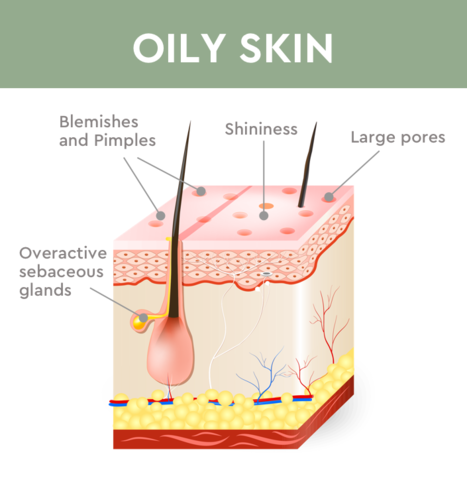
Oily skin is known medically as seborrhea and is caused by excess oil produced within the pores. During puberty and other life events, fluctuating hormones can result in increased androgen levels - androgens are considered one of the top oily skin causes. Androgens are male hormones present in both males and females that signal the maturation of the skin’s sebaceous glands. As these glands mature, oil production increases.
When more androgens are present, more sebum is funneled through the pores, which then sits on the surface of the skin, creating an oily sheen. When the excess oil becomes trapped in the pore, it combines with dead skin cells and bacteria on the surface of the skin and inside the pores, leading to pimples, blackheads, and other blemishes.
The Role of Genetics
Genetics also play an important role in what causes oily skin. In most cases, the reaction to hormonal changes is dependent on genes and hormones. Life events like puberty or pregnancy can result in hormone fluctuations, and genetics and hereditary factors can determine how your skin reacts to them.
Will Oily Skin Go Away on Its Own?
Since two of the main hormonal causes of oily skin are puberty and adolescence, some people see their oily skin fade with time, especially after puberty. Unfortunately, that’s not the case for everyone.
Because our genes direct how we respond to hormone fluctuations, excess sebum production may be something inherent to your skin and body processes. This means some of us never grow out of it. Luckily, we’ve compiled a list of 10 ways you can control your oily skin.
Do You Have Oily or Combination Skin?
Knowing the answers to the questions “why is my skin so oily” and "what type of acne do I have" is essential to understanding what treatment and ingredients to integrate into your skincare regimen. So first, let’s determine which of these two skin types accurately describes you:
Oily Skin Type
Those who have oily skin often have a shiny face and may deal with breakouts on a regular basis. Oily skin types tend to have larger, more noticeable pores.
Combination Skin Type
This is the most commonly reported skin type. Combination skin exhibits two skin types on the face. Your T-zone will often be oily, while your cheeks and other areas of the face may be dry.
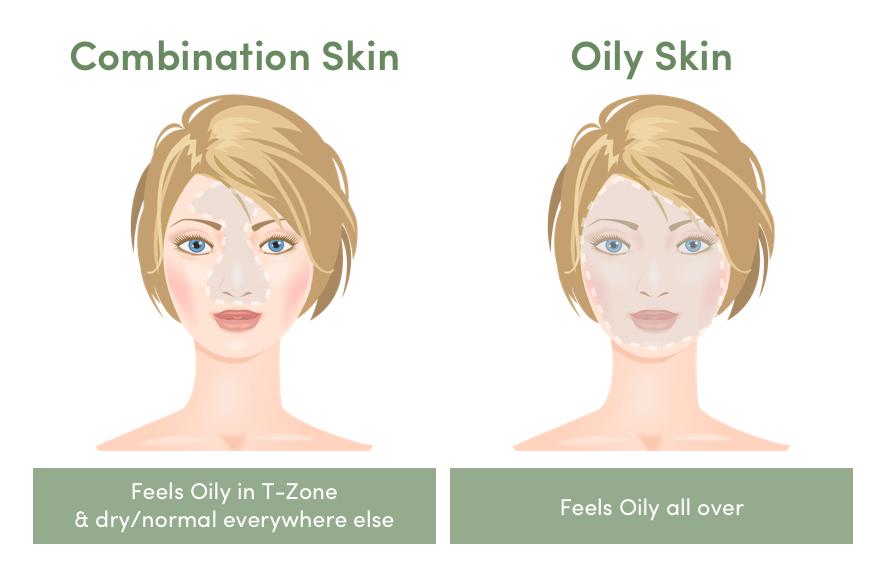
Now that you’ve identified which skin type applies to you, you can begin taking steps to reduce your oily skin. In some cases, it can be as simple as making small adjustments to your diet and sleep regimen but for others it takes a full overhaul of your skincare lineup to get your skin and health in harmony.
Ready to figure out how to control oily skin? Here are our top 10 ways to cut down on shine and improve your oily skin:
1. Consistent Cleansing is Key
Let’s start with the basics. Cleaning your face daily with a gentle cleanser that utilizes effective acne treatment ingredients can help you cut down on oil production.
For oily or combination skin, it’s important to wash once in the morning and once before going to bed. Since debris, makeup, and dead skin cells are some of the more common oily face causes, you’ll want to make sure you wash thoroughly, but gently, to make sure they are completely removed from your face.
Sweat is also a major contributor to oily skin problems. If you participate in any form of exercise that results in heavy perspiration, always be sure to shower immediately afterwards so sweat doesn’t linger on the skin. Also remove tight, sweaty clothes that can result in acne mechanica on the body, which is common among students and athletes.
Those that ask themselves "why is my skin so oily?" may also notice they have oily hair. This can be remedied with regular washing and medicated shampoo treatments. It’s important to also avoid greasy hair products like pomades and waxes, as they can irritate the scalp and block pores, causing oily skin and hair.
What Types of Cleansers Should You Use?
Cleansing products are not all created equal. In fact, instead of improving your skin, they can lead to other issues, especially for those with sensitive skin. Some acne treatments may contain ingredients like benzoyl peroxide, but this harsh compound has actually been proven to cause a great deal of redness and irritation as well as excessive dryness and skin flaking. You should also stay away from oil- or alcohol-based cleansers.
Foaming facial cleansers are recommended to gently clean your skin. A foaming plant-based face wash that is dermatologist tested and contains gentle, refreshing ingredients like green tea and chamomile, is a healthy way to get started.
Choosing between benzoyl peroxide or salicylic acid for your acne treatment is a hot topic but studies have shown salicylic acid cleansers to be a better solution. A cleanser containing vitamin A for acne reduction is another approach you can take. Substantial research has pointed to vitamin A as an aid for an oily complexion because it can suppress the production of sebum. You may want to discuss your options with your dermatologist to determine which is better for your unique circumstances.
2. Use a Safe Product for Exfoliating Skin & Treating Acne
If your skin is shiny and broken out, you might be inclined to overdo it on products and exfoliation or even resort to grabbing something around the house like toothpaste or other “home remedies.” But beware, these can actually do more harm than good by drying out your skin. To protect your skin, prevent more oil production, and effectively treat skin problems, you should use a prescription-grade product that also moisturizes.
bioClarity is a vegan skincare line that combines the power of effective natural ingredients and salicylic acid to help tackle acne breakouts and blemishes. Salicylic acid is a Beta Hydroxy Acid that dissolves keratin, helps exfoliate the skin, and removes dead skin cells, debris, and bacteria that can clog the pores and cause blemishes. Our acne treatment gel is a safe option that contains the highest allowable percentage of this acne-fighting ingredient to help unclog pores and keep skin clear and blemish-free.
3. Moisturize Daily
But won’t that make your skin more oily? Not necessarily. Putting moisturizer on top of oily skin might seem counterproductive, but a regular moisturizing routine is vital, even for those with oily and combination skin types. Without moisturizer your skin can become dry, which can actually cause your glands to produce more sebum, resulting in even more oil.
You should moisturize daily but choose your moisturizer carefully. Like your cleanser, stick to oil-free, non-comedogenic moisturizers. You should also avoid heavy or greasy moisturizers if you have acne-prone skin. If you have combination skin, you may need to use two types of moisturizers to best treat the different areas of your face. For the best results, use a non-comedogenic, oil-free moisturizer for your T-zone, and a thicker cream moisturizer for the dry areas.
Hydrate your oily skin with our 100% vegan and plant-based moisturizer, Hydrate, which is best for oily to normal skin types. This lightweight and breathable moisturizer includes natural ingredients such as Floralux®, a natural compound derived from Chlorophyll, argan, olive, and licorice root to replenish your skin.
To simplify your skincare and makeup routine, add in Primed & Ready, which is a 2-in-1 deeply hydrating primer that doubles as an everyday moisturizer. It's designed to help blur pores and imperfections, prep your skin for flawless makeup application, and extend the wear of your makeup to lock in your look all day (or night) long.
Get Ready for Your Close-up
This 2-in-1 primer locks in your makeup and keeps your skin hydrated all day. Go ahead and snap a selfie -- no filter needed.
Get Primed4. Use Blotting Sheets to Minimize Shine
Beyond consistent cleansing, there are a few ways you can combat shine throughout the day. Blotting your skin lightly with oil-absorbing materials can help keep the shine down on days when it’s especially noticeable.
If you do use blotting papers, take a measure of caution. Hold the sheet in place for several seconds to absorb oil but only blot lightly, as wiping the skin can result in irritation and aggravate your acne condition.
You should also avoid any facial tissues that contain lotion or fragrances, as these additions can irritate sensitive skin. If your skin does become irritated, our Zen antioxidant serum can provide relief and is cruelty-free, paraben-free, and sulfate-free.
You can even use blotting sheets on your phone screen to remove oil and buildup to help prevent breakouts.
5. Get Enough Sleep & Clean Bedding Often
Getting the right amount of rest each night is important to holistic health, and it also can significantly affect the look and appearance of the skin. Sleep deprivation can result in insulin resistance. Insulin increases can result in the creation of IGF-1, a hormone that stimulates an increase in the production of sebum.
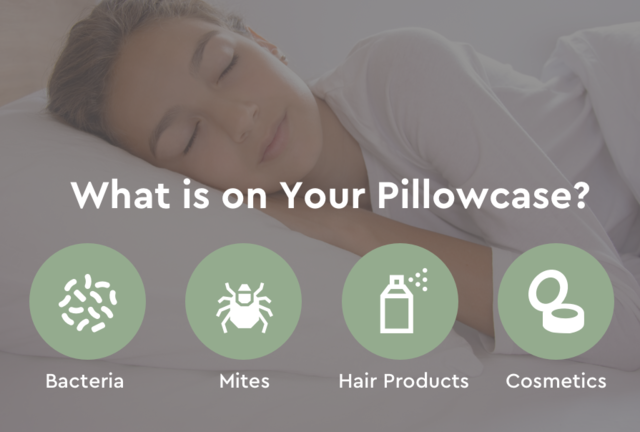
Make sure you’re washing your bedding frequently because oil, dirt, and makeup can accumulate and contribute to your skin issues, even if you remove your makeup before bed. Ideally, you should wash your bedding once a week but if you simply don’t have the time, make sure you at least wash your pillowcases weekly.
6. Eat a Healthy Diet
Eating healthy can not only improve your overall well-being but also your skin because certain foods that you eat might be contributing to an oily face and acne. The reduction of oil and acne from dieting is common practice. If you frequently find yourself asking “why is my skin so oily”, increasing acne-fighting foods might be a good place to start to help improve your skin. This includes foods and beverages with:
- Omega-3 fatty acids
- Antioxidants
- Green tea
- Probiotics
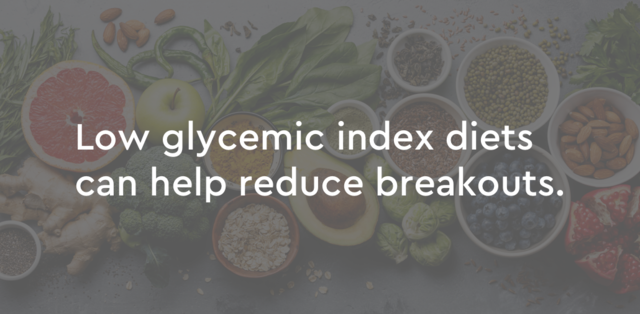
Eating a low-glycemic diet can also be helpful. Before making any substantial changes to your diet, you may want to consult with your doctor or nutritionist to prevent other health issues.
7. Keep Your Stress in Check
Be sure to manage your stress, as it has been connected to insulin resistance and worsened breakouts in numerous studies. For many, higher stress levels can trigger acne. According to recent research, the link between stress and acne goes both ways. Severe acne has also been associated with increased risk of anxiety and depression.
To help reduce stress, try exercising regularly, practicing meditation, or talking to a friend or family member if you’re feeling overwhelmed.
8. Always Wear Sunscreen
It can be tempting to skip the sunscreen because you’re worried about it clogging your pores even more, but no matter your skin type, it’s important to use sunscreen on a daily basis to keep your skin protected and looking its best. Exposing yourself to UV rays by not wearing sunscreen can actually stimulate sebum production, triggering a breakout. Plus, if you’re taking acne medication, your sensitivity to ultraviolet light might be heightened, putting you at a higher risk for skin damage.
If you have combination or oily skin, you should take a look at the type of sunscreen you’re using to avoid undesirable side effects. Look for sunscreens that are labeled oil-free. You can also use light foundation products that contain SPF for an added bit of protection.
More than sun-proof. Life-proof.
Protect your face and body from harmful UV rays, free radicals, blue light, and environmental pollutants with these non-nano 100% mineral zinc oxide sunscreens for everyday use.
Protect Your Glow9. Wear Makeup Wisely
Having an oily face can make you want to cover your skin with heavy makeup but that can actually worsen your skin issues. Makeup doesn’t necessarily cause acne, but with misuse, it can become a problem. Look for non-comedogenic makeup products and always apply in light layers.
Avoid any cosmetics that contain fragrances which can result in irritation and acne blemishes, as well as those containing alcohol which cause dry, flaky patches on the skin. Using loose powder instead of pressed powder, which contains oils, is also recommended. BioClarity’s Dewy Dew setting spray can also prevent the need to reapply throughout the day while nourishing your skin.
You should also gently remove every last bit of makeup before going to bed and before working out. Regularly washing your makeup brushes can also help prevent breakouts since oil and makeup can buildup within the bristles and foster bacteria over time.
10. Avoid Touching Your Face Throughout the Day
Every day, your hands come into contact with allergens, germs, and bacteria that are harmful to both your health and your skin. Touching your face is a major factor in what causes oily skin. While it’s a hard habit to break, it’s important that you become more mindful because you can easily transfer oil, dirt, and bacteria from your hands to your face. The same goes for picking at your acne or popping pimples, which can spread infection and worsen your breakout.
You should always wash your hands immediately before touching your face. This also goes for anything else that will be put in contact with your face. To limit bacteria and worsening of your oily skin and other skin issues, you should clean your glasses, headbands, and hair regularly.
Treating Other Problems Associated with Oily Skin
Oily skin doesn’t just make you look shiny, it can also exacerbate skin problems. If you’re experiencing issues like acne, blackheads, and other blemishes, we can help you understand and manage these issues as well. Read more about these conditions to answer your remaining questions:
- What is acne?
- What are blackheads?
- What are whiteheads?
- What is cystic acne?
- Preventing and treating acne scarring
We can help you improve your skin with plant-based, vegan products that are healthy for you and have proven results.
A Consistent, Multi-Faceted Approach Is Best
Unfortunately, treating oily, blemish-prone skin isn’t an overnight fix but implementing and sticking to good habits can lead to a better complexion. Making one small change may improve oily skin temporarily but typically, you’ll need to make modifications to your skincare routine and overall lifestyle to achieve consistently clear skin.
We don't just strive for quick fixes, we provide a broad range of skin solutions that treat the underlying condition to genuinely improve your skin. Our Clear Skin Routine can help you control your oily face with noticeable changes in as little as two weeks. To start your journey towards healthy, balanced skin, start a daily skincare routine made up of products designed to offer oil control. The key is to incorporate effective, yet gentle skin treats that will help get rid of excess shine without over-drying your skin.
Oily Skin Isn’t All Bad
Some shine may cause a bit of embarrassment, and reapplying makeup after it slides off can be frustrating, but there are benefits to having oily skin.
Having higher sebum levels can actually benefit your health. Sebum contains vitamin E, an antioxidant that can help prevent blood vessel diseases. High levels of sebum can also help protect the skin against infection and strengthen the body’s antioxidant defense.
Additionally, while many people suffer from dry skin and its uncomfortable side effects during winter, those with oily skin enjoy a year-round natural glow and are actually less likely to experience these symptoms. Most skin care experts also agree that those with oily or combination skin types often age more slowly. Oily skin remains lubricated, preventing fine lines and wrinkles.
You may not enjoy it now, but with proper skin care, you may find your skin benefits from that excess sebum down the road.
Key Takeaways
- Oily skin is the result of excess sebum production, which can be caused by hormonal fluctuations and is influenced by genetics.
- Salicylic acid is a powerful acne-fighting ingredient that can help cut down on the appearance of oil and blemishes on the skin.
- Those with oily skin should still use moisturizer, as drying out the skin can signal the oil glands to produce even more sebum.
- Lifestyle habits can affect the appearance of the skin, so it’s important to get enough rest, maintain a consistent cleansing routine, and avoid irritating products.
- A multi-faceted approach is usually the best way to improve oily skin and related skin problems.
- Maintaining a consistent skincare regimen is essential to healthy, clear skin.

Abby Vinas
Abby Vinas has long been an active member of the holistic health community, advocating in favor of its benefits to both our physical and emotional well-being. Her commitment to leading a healthy lifestyle has made her an authority on self-care practices. Abby is passionate about fitness, nutrition, and proper skincare, and is also an avid lover of avocado toast and dog-petting.
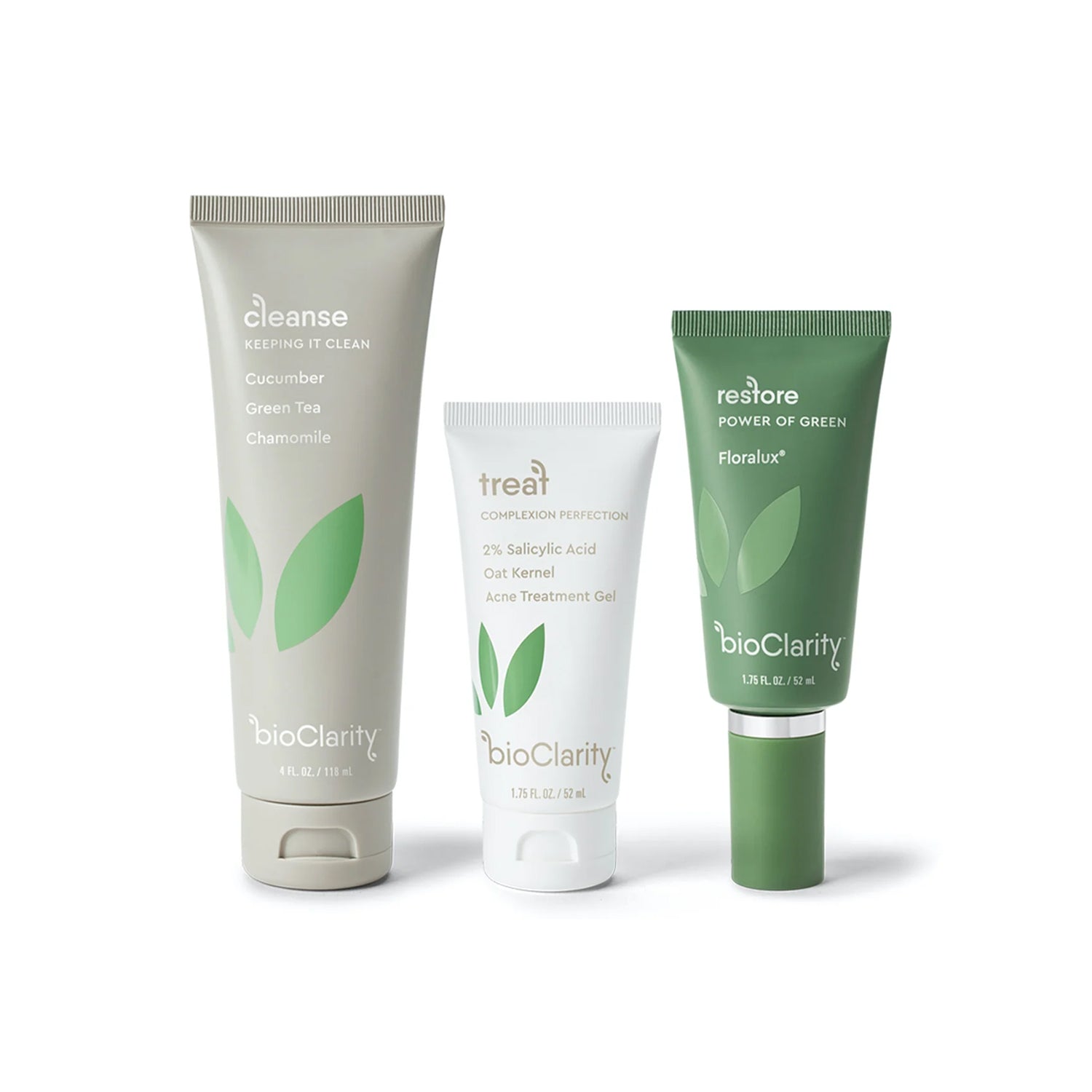
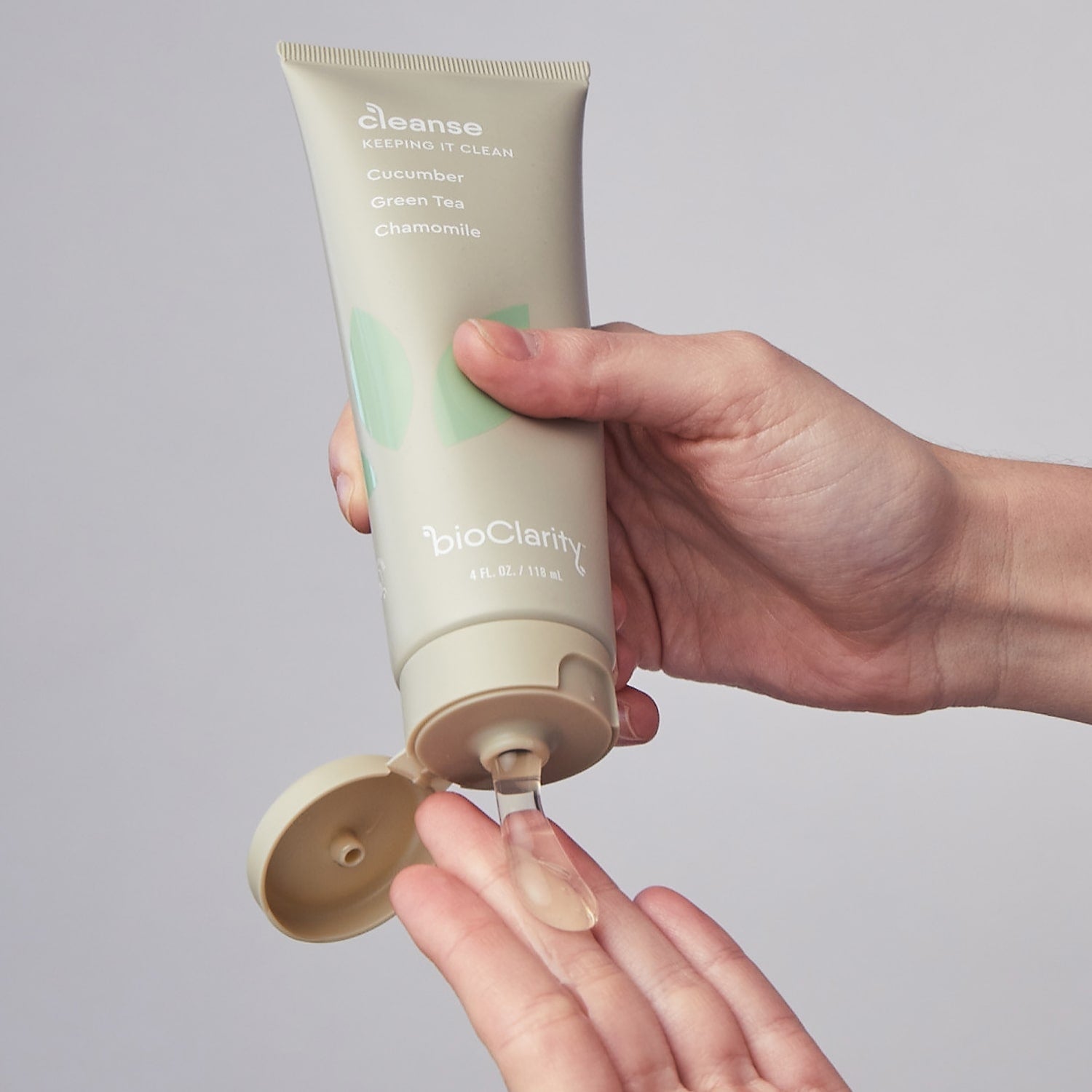
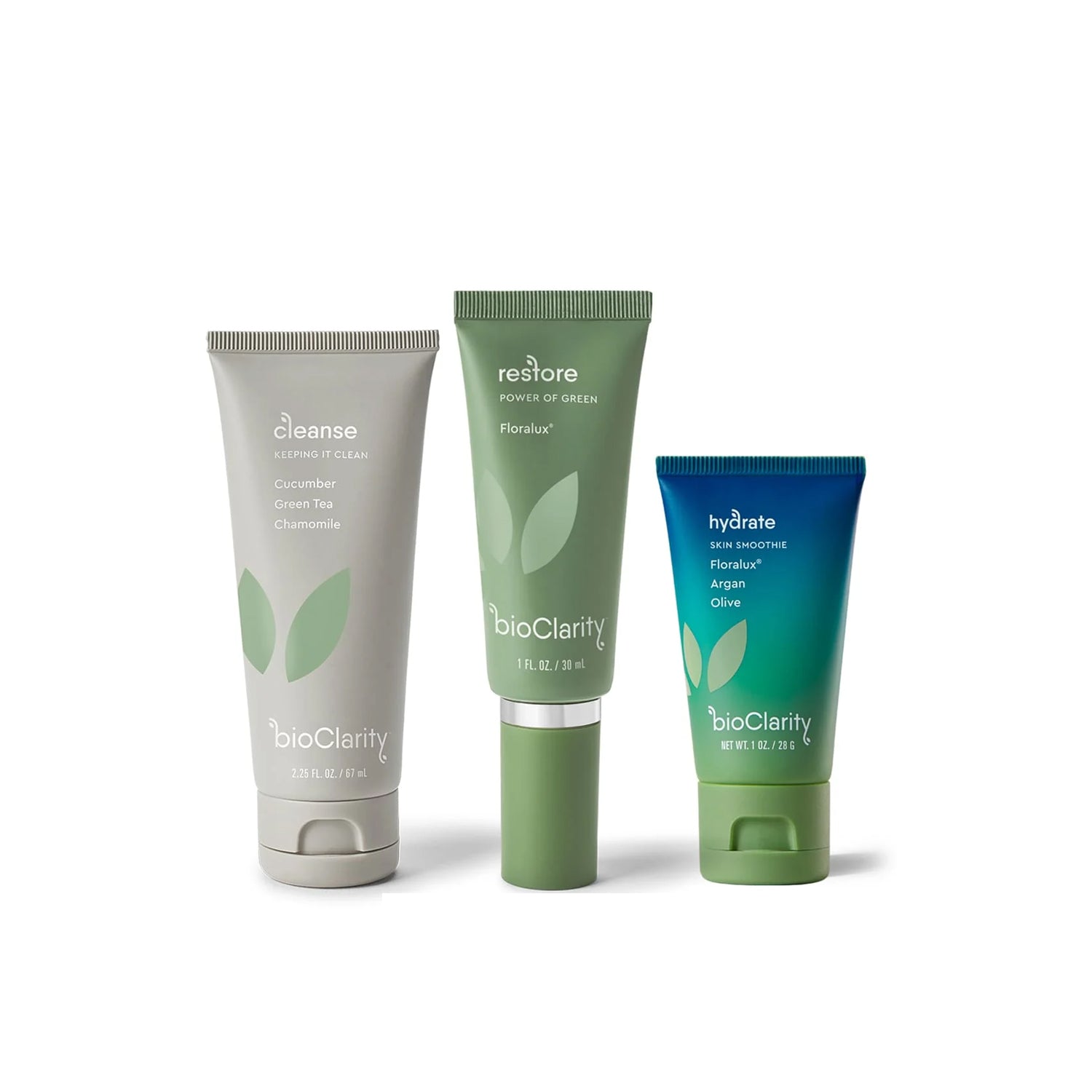
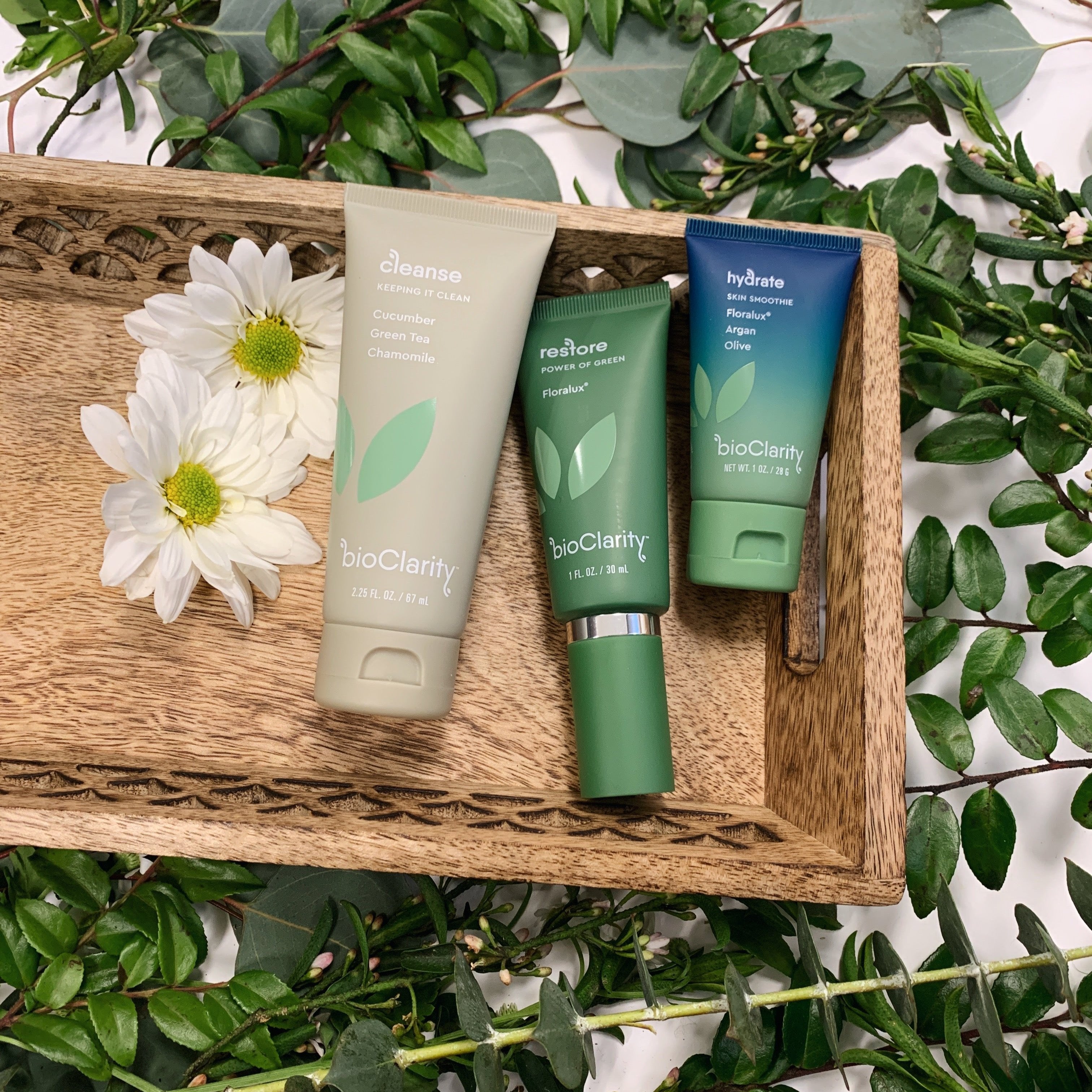
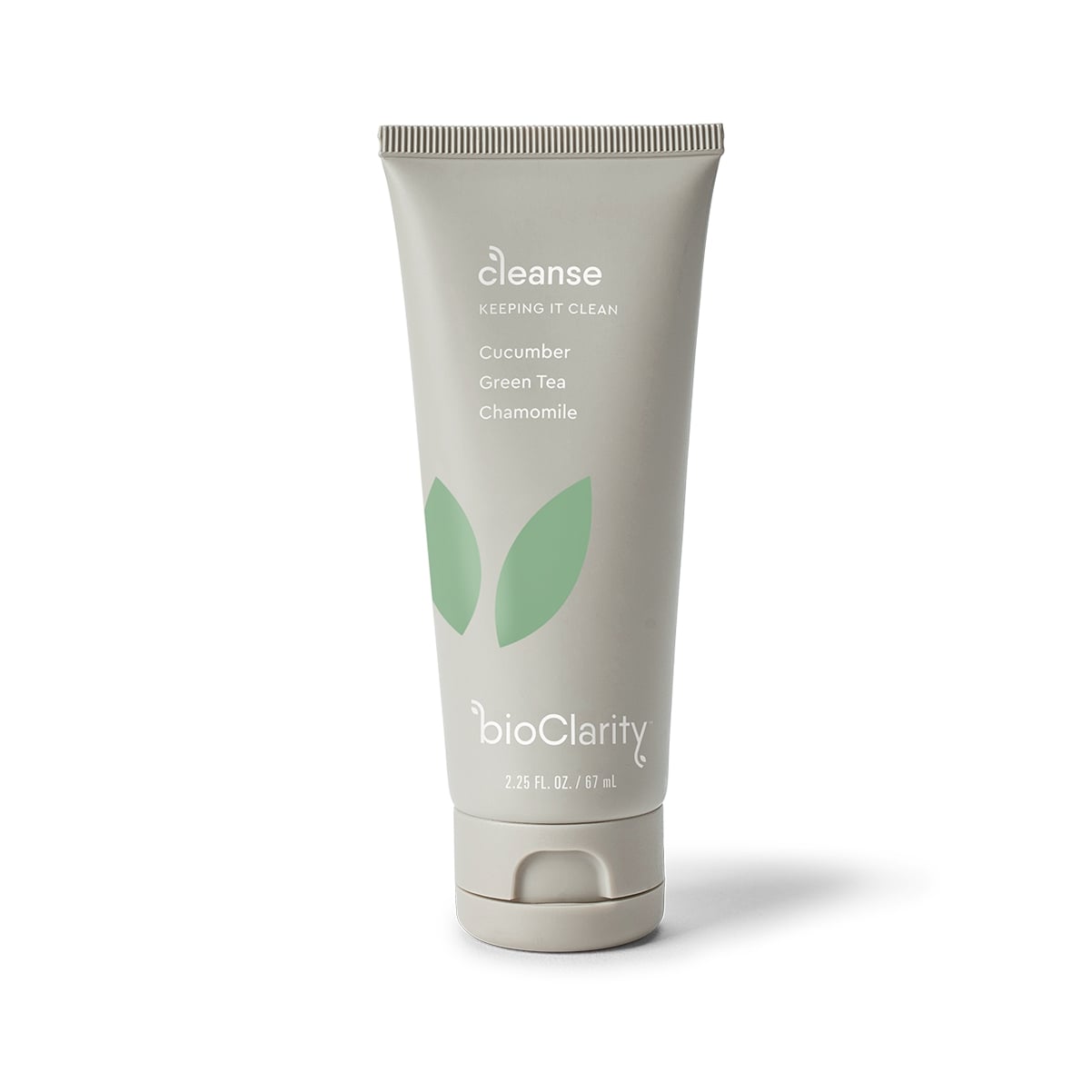
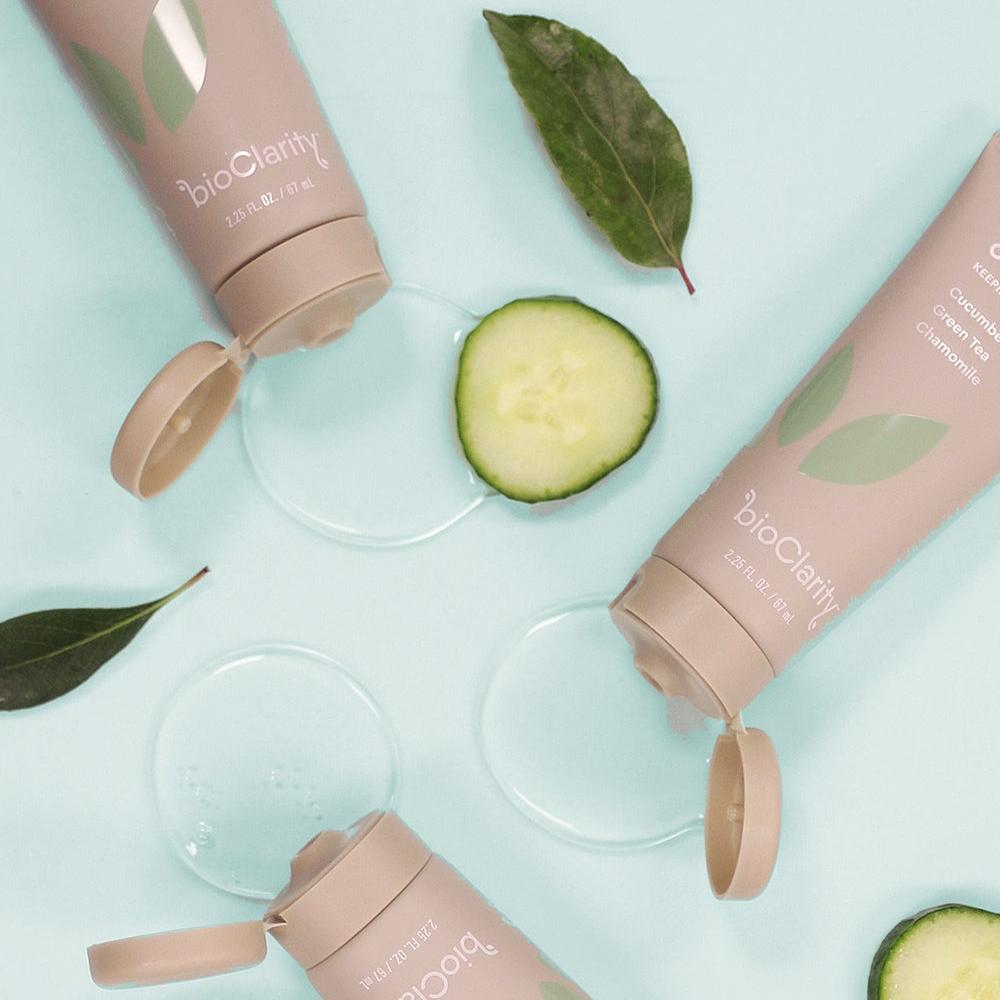




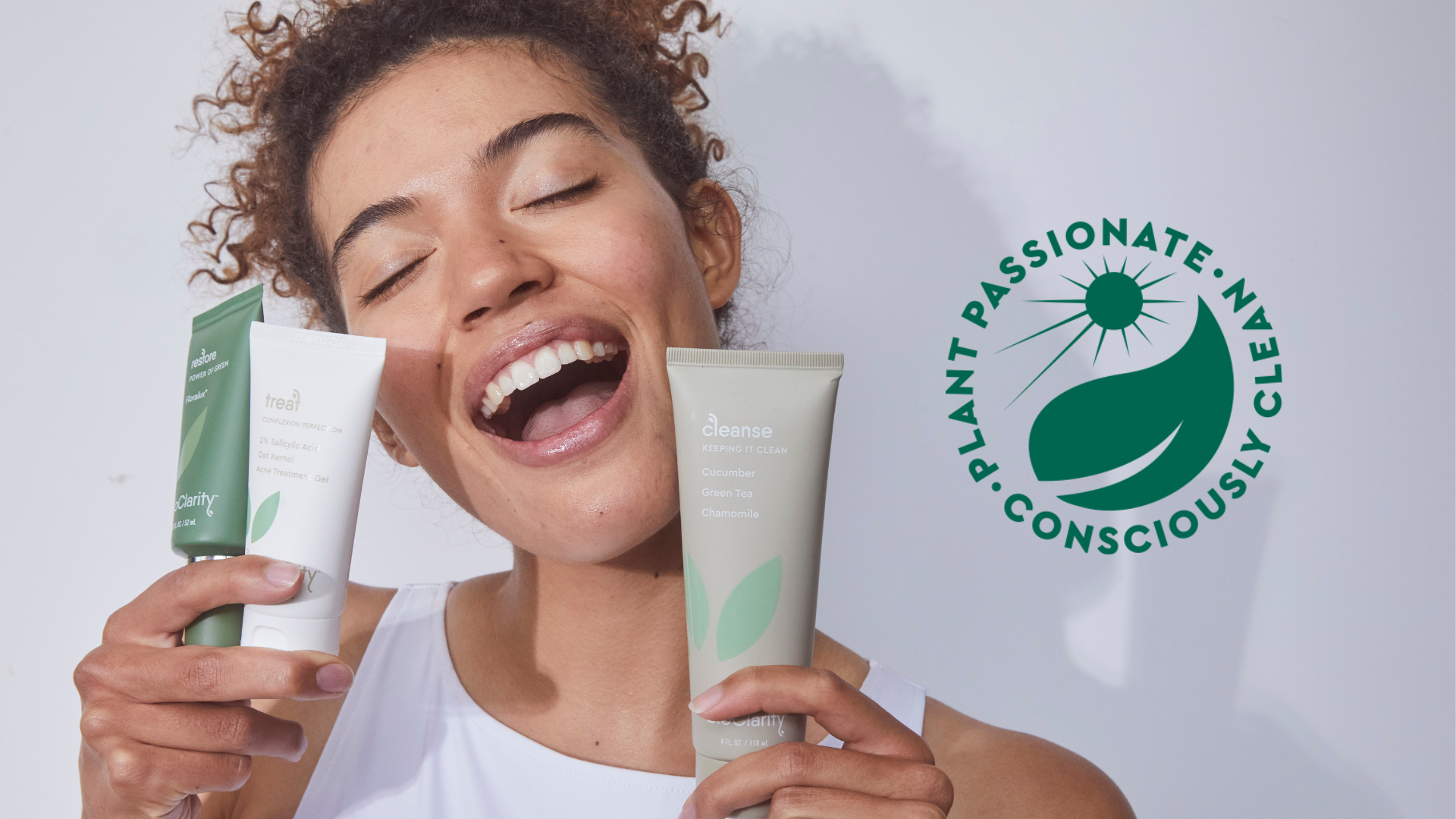
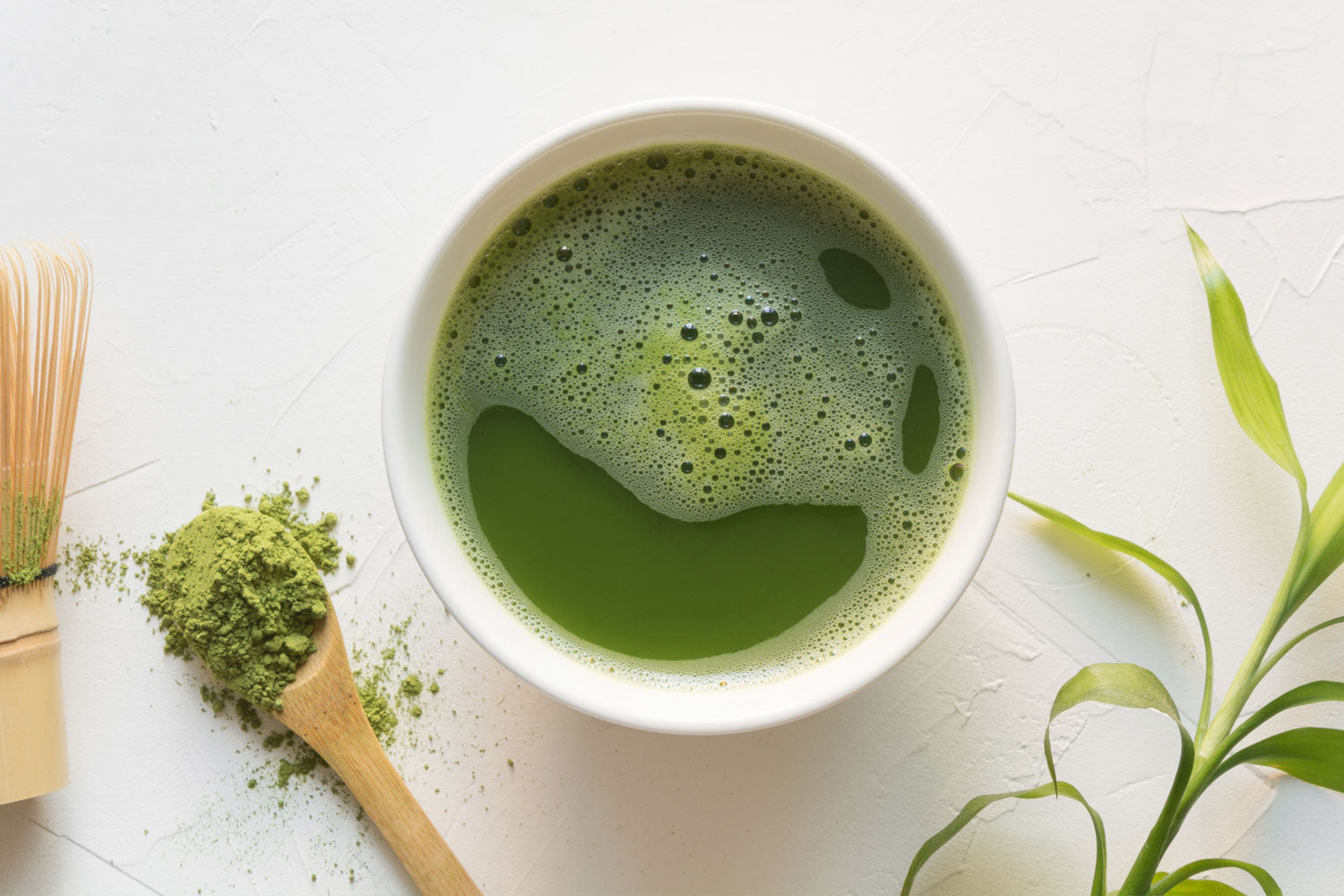
Comments
Joe —
Very well written. Thanks Abby
Marian —
This was really helpful especially the part you said moisturize regular in order that your oil gland doesn’t produce more oil when the face is dry ….. can you recommend good moisturizers for me to use … will be very grateful